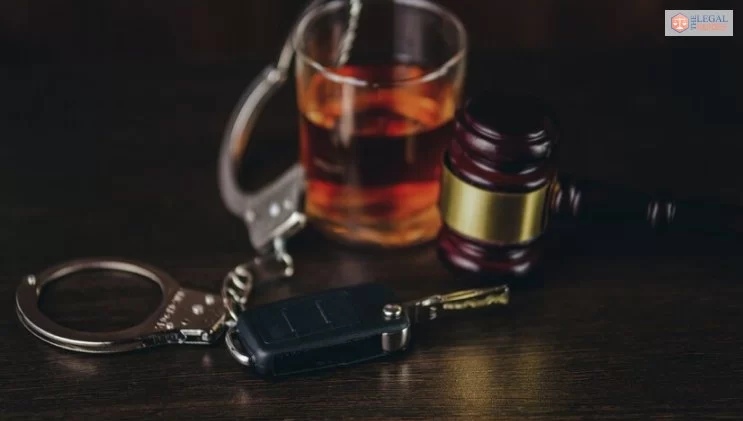
- what-are-open-container-laws
- how-open-container-laws-vary-by-state
- real-life-penalties-and-common-misunderstandings
- open-containers-in-vehicles-public-spaces-and-events
- tips-to-avoid-violating-open-container-laws
- why-legal-guidance-from-esplawyers-matters
1. What Are Open Container Laws?
Open container laws regulate the presence and consumption of alcoholic beverages in public areas and vehicles. In simple terms, these laws make it illegal to have an open alcoholic drink in certain places, such as on sidewalks, public transportation, or inside a car. The purpose is to reduce public intoxication, impaired driving, and alcohol-related disturbances.
For an alcohol container to be considered “open,” it doesn’t have to be actively consumed — even a broken seal or a missing cap might qualify. Many people unknowingly violate these laws by transporting leftover wine in the wrong way or casually sipping a beer during a festival. Understanding what qualifies as an open container is the first step to staying compliant.
2. How Open Container Laws Vary by State
2.1 Federal Guidelines and Local Interpretation
While federal law (especially for transportation funding compliance) encourages restrictions on open containers in vehicles, each U.S. state has its own interpretation and enforcement. For instance, in states like California and New York, open containers are banned in most public places. However, cities such as New Orleans or Las Vegas have more relaxed regulations that allow open drinking in designated areas.
2.2 Dry vs. Wet Cities
Some cities within the same state can impose stricter rules. A classic example is the contrast between Austin, Texas (where open containers are banned in the downtown entertainment district), and some beach towns in Florida where outdoor drinking is common during festivals. Local ordinances may override state flexibility, making it crucial for travelers and residents to check city-specific rules.
2.3 Zero Tolerance Zones
Some areas, like school zones, government buildings, and parks, may have zero tolerance regardless of broader city or state policies. Even tourists attending parades or local events can find themselves ticketed if they aren't cautious.
3. Real-Life Penalties and Common Misunderstandings
3.1 The Cost of a Simple Mistake
Fines for open container violations can range from $50 to $500 or more. Repeat offenses or incidents involving underage possession may lead to arrest or a court appearance. Take the case of a college student in Michigan who was fined $300 for carrying an unfinished bottle of vodka in his backpack after a tailgate — even though he wasn’t drinking it at the time.
3.2 The Myth of “Backseat Exemption”
A common misconception is that having an open container in the backseat is always legal. In many states, this is only true if the area is physically separated from the driver (like in a limo or RV). In a standard car, even a sealed bottle visible from the front seat can raise questions during a traffic stop.
3.3 When “Open” Doesn’t Mean “Consumed”
Another misunderstanding is that a container must be actively used to be illegal. Even if you haven’t taken a sip, once the seal is broken, it could qualify as an offense. That’s why it's best to transport any leftover alcohol in the trunk or out-of-reach area of your vehicle.
4. Open Containers in Vehicles, Public Spaces, and Events
4.1 Vehicles and Alcohol Transportation
Laws concerning open containers in vehicles are among the strictest. Most states prohibit passengers from drinking in the car, regardless of whether the driver is sober. Law enforcement often treats any open bottle as probable cause, especially during DUI stops.
4.2 Public Parks, Beaches, and Sidewalks
Outdoor events and public areas often come with temporary restrictions. Many cities grant alcohol permits to festivals or beer gardens, but that doesn’t make drinking elsewhere legal. For example, during a summer event in Chicago, one man was cited for carrying a margarita outside of the fenced-off event space — even though he purchased it legally within the permitted area.
4.3 Events with Temporary Permits
Events with designated alcohol zones are strictly enforced. Wandering beyond the signage with your drink can lead to fines. Always stay aware of event boundaries and ask staff if unsure. Event apps and signs are helpful, but knowing the law is even better.
5. Tips to Avoid Violating Open Container Laws
5.1 Know Before You Go
Before heading to a festival, road trip, or new city, take a few minutes to review local alcohol regulations. Apps like city legal guides or direct consultation with legal professionals can help you stay safe and compliant.
5.2 Store Alcohol Properly
Always transport unfinished alcohol in the trunk or a sealed container. Use a resealable bottle and avoid leaving drinks in plain sight, even in bags. If you’re using a rideshare service, keep your drink sealed or leave it behind.
5.3 Educate Your Group
Friends or group members unfamiliar with laws can unintentionally cause problems for everyone. If you're hosting or organizing a gathering, share basic rules with attendees. Preventing a mistake is far easier than dealing with citations later.
6. Why Legal Guidance from ESPLawyers Matters
Open container laws may seem minor, but violations can quickly escalate — especially when combined with driving or underage possession. Whether you’re facing a citation or just want to ensure your business or event complies with the law, professional advice is invaluable.
At ESPLawyers, our legal team specializes in state and local alcohol regulations. We help individuals, businesses, and event organizers navigate the gray areas of compliance. If you’re unsure about local rules or need help resolving a citation, reach out to ESPLawyers for tailored legal solutions that protect your rights and keep your record clean.








